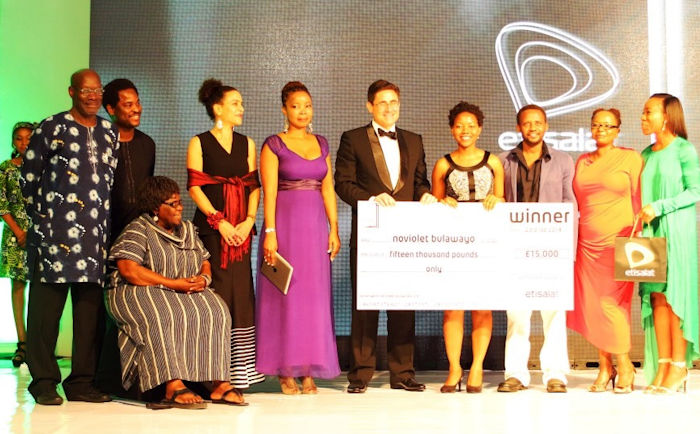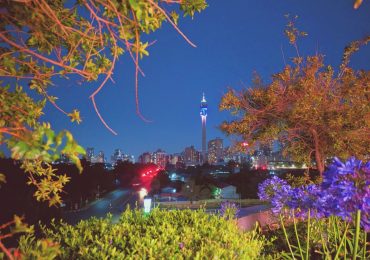Sharp-eyed book lovers will have noticed that the winner of the 2018 9mobile Prize—one of literature’s most important international awards—has not been announced.
The shortlist of three books was released back in January 2018, and the winner was expected to be revealed around March of that year.
The JRB has been in contact with a prize judge as well as a shortlisted publisher, who both affirmed they have received no recent communication on the status of the prize. The last communication the publisher received was in June 2018, when prize organisers stated:
We are just concluding the process of 9mobile ownership change hence the delay in the announcement of the 2018 winner. We are hopeful that we will confirm a date for the announcement before the end of the third quarter
Unfortunately and cruelly for the shortlisted writers, Ayọ̀bámi Adébáyọ̀, Lesley Nneka Arimah and Marcus Low, there is no indication of whether one of them will ever receive the prestigious award, or the £15,000 prize money that comes with it.
The award was launched in 2013 as the Etisalat Prize for Literature, founded by telecommunications company Etisalat Nigeria, billing itself as the ‘first ever pan-African prize celebrating first time writers of published fiction books’.
In August 2017, Etisalat Nigeria renamed itself 9mobile, and the award name changed at the same time. Some feared that the financial crisis faced by the company would threaten the award, but company management was quick to allay those fears.
In the statement announcing the prize name change, 9mobile Chief Executive Officer Boye Olusanya said: ‘9mobile is proud to be at the forefront of promoting creativity and innovation among Nigerians and will continue to support the discovery and growth of home grown talents by creating platforms that help African writers to tell authentic African stories.’
Ibrahim Dikko, the Vice President of Regulatory and Corporate Affairs at 9Mobile, said reassuringly at the time that ‘while we go through this phase, we plan to remain true to those two pillars: continued excellent quality service on the network and our support on the corporate social responsibility side. As you may have seen, we have indeed advertised for entries for the 2018 prize for literature.’
Publishers duly submitted their entries, and a longlist and shortlist were announced, before the prize went quiet toward the end of 2018—the last Facebook post being in August, and the last tweet being in September—leaving the shortlisted authors completely in the dark.
Past winners of the 9mobile Prize received £15,000, an engraved Montblanc Meisterstück pen, a book tour to three African cities, and an Etisalat Fellowship at the University of East Anglia, under the mentorship of Professor Giles Foden, author of The Last King of Scotland. In addition, Etisalat pledged to buy 1,000 copies of each shortlisted book, a significant number of sales for a fiction author, and the shortlisted authors were also rewarded with a book tour.
A flash fiction competition, the Etisalat Flash Fiction Prize, was launched at the same time as the main prize, with £1,000 and a ‘high-end device’ as its prize.
The Etisalat Prize was decided by high profile judges from around the continent, and it entered the African literary space as a behemoth, prize money-wise. By comparison, the nineteen-year-old Caine Prize for African Writing, awarded for a short story, is worth £10,000. The Nigeria Prize for Literature, which rotates among four genres (fiction, poetry, drama and children’s literature), is worth $100,000 (about £78,600), but is only open to Nigerian citizens. The Sunday Times Literary Awards, at R100,000, are worth about £5,300 each, but are only open to fiction and non-fiction by South African citizens and residents.

Zimbabwean NoViolet Bulawayo won the inaugural Etisalat Prize in February 2014 for her novel We Need New Names. Subsequent winners were South Africa’s Songeziwe Mahlangu for Penumbra (2014), Democratic Republic of Congo’s Fiston Mwanza Mujila for Tram 83 (2015) and Jowhor Ile of Nigeria for And After Many Days (2016). (The prize then revised its nomenclature, with the next award being the 2018 edition.)
When the Etisalat was launched, the prize organisers had lofty ambitions:
The Prize aims to serve as a platform for the discovery of new creative talent out of the continent and invariably promote the burgeoning publishing industry in Africa.
By recognising and celebrating writers and other members of the literary community across Africa, Etisalat plans to bring some much needed awareness and acclaim to the art of Fiction writing while also applauding and rewarding the efforts of those who have ventured into this genre in recent times.
Unfortunately, as with many ambitious African cultural initiatives—especially those reliant on the backing of governments or corporations—the great fanfare with which the Etisalat/9mobile Prize was announced has proved fleeting, making was for casual disregard. The JRB is sad to see you go, 9mobile Prize, but at the same time we’re not particularly surprised.
The JRB sent several enquiries to employees at 9mobile’s sponsorship and culture desks before publishing this post. We’ll update readers as and when we receive any reply or further information about the prize.






4 thoughts on “[The JRB Daily] The mysterious demise of the 9mobile/Etisalat Prize for Literature—the world’s biggest Pan-African book award”